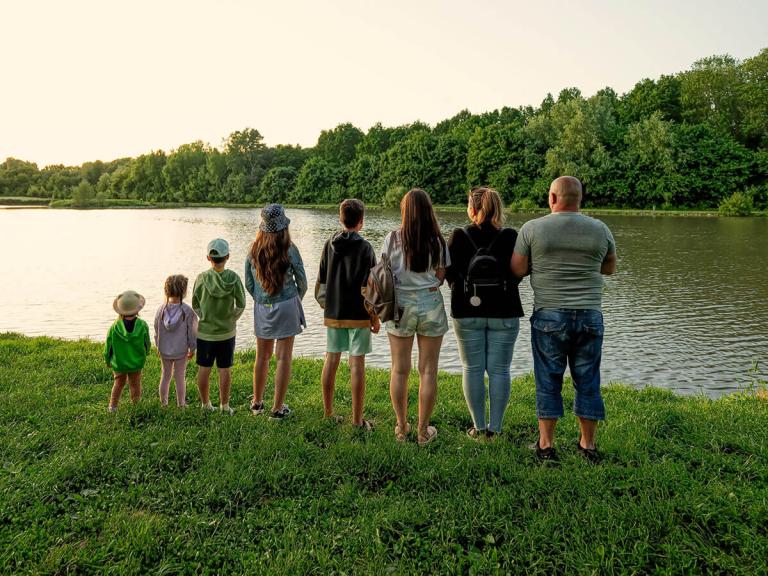
A new Gallup poll is revealing that most Americans since 1971 prefer bigger families. The poll, conducted between June 1-22 and July 3-27 of this year, asked, “What do you think is the ideal number of children for a family to have?” Results showed that 45 percent of US adults believe three or more children are ideal for family size, while 47 percent stated that one or two children were ideal. Only two percent believed the ideal family had no children at all. The results show that Americans believe about 2.7 children per household is ideal, nearly two times as high as the current US birth rate of 1.64.
The percentage of US adults who preferred families of three or more peaked in 1945, just before the baby boom, at 77 percent. The birth rate during the baby boom peaked at 3.6. By 1971, that number was down to 52 percent who preferred bigger families, where it continued to decline until 1986 when only 28 percent of Americans believed three or more children was ideal. Reasons for the decline could be the greater access to birth control and concerns about population explosion, as detailed in the 1968 book The Population Bomb. The number has slowly risen since then, with the occasional fall, until it reached this most recent number of 47 percent. Economic concerns tend to increase the percentage of Americans who prefer smaller families of one or two children, such as when that number reached 57 percent after The Great Recession in 2011. The poll also found that 90 percent of US adults either have or want children, with 69 percent already having children, 15 percent of adults aged 18-40 not having children but wanting to, and six percent of adults aged 41 or older stating they wish they had children. Only 8 percent stated they did not want children at all.
The poll found that while age, income, and political affiliation were meaningful predictors of ideal family size, race/ ethnicity and church attendance were the strongest predictors of family size preference. More black and Hispanic Americans (57 percent and 53 percent, respectively) preferred three or more children over white Americans (41 percent). Americans who attended church weekly or nearly weekly/ monthly (54 percent and 50 percent, respectively) also preferred three or more children to those who seldom or never attended church services (41 percent). Republican and Republican-leaning Americans tend to prefer bigger families over Democrat and Democrat-leaning adults (50 percent vs 40 percent).
Although the percentage of Americans believing bigger families are ideal has risen, America’s current birth rate of 1.64 does not reflect that many families are making that a reality. Study analyst Megan Brenan suggested that part of the reason for this disparity was that Americans are waiting until they are older to have children. The poll showed that 79 percent of adults under the age of thirty did not have children, despite 63 percent of them stating they would like to. Melanie Notkin, author of OTHERHOOD: Modern Women Finding a New Kind of Happiness, writing for the Institute for Family Studies (IFS), writes that for many women, childlessness is not a choice. After describing her own desire to be a mother and her disappointments in love as a woman of 54, Notkin concludes, “While more young women today say they are remaining single and childless by choice, I have my doubts that it’s what most of them truly want. It’s simply easier never to be disappointed in love if you don’t even try.”


